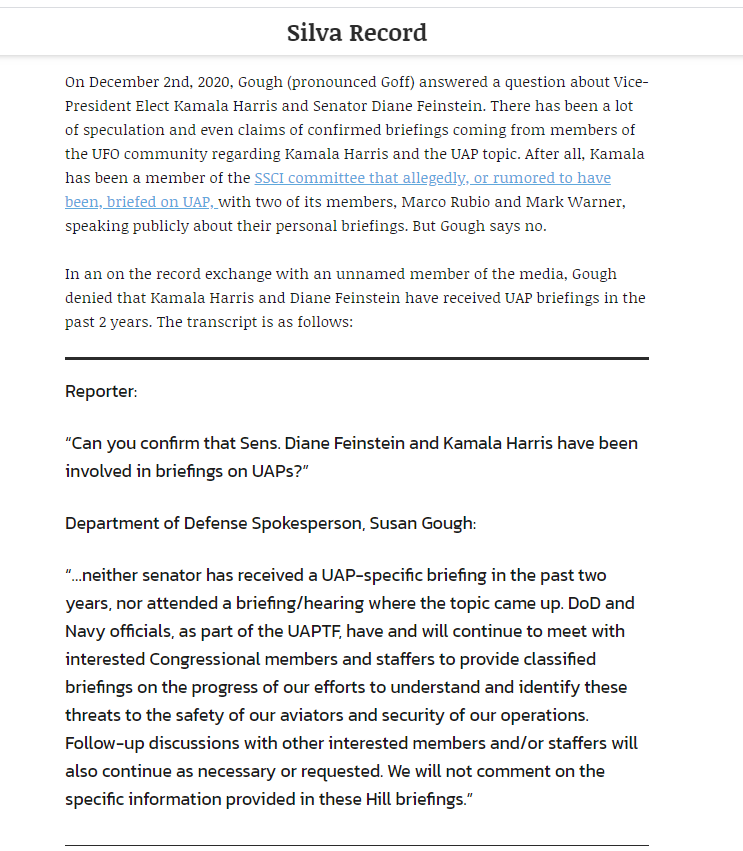This is an update on the status of the UAP-UFO-linked legislation in Congress. Summary: The UAP-linked legislation is in peril, but it is still alive-- and even if it fails to pass, all is not lost. Background: In June, the Senate Select Committee on Intelligence (SSCI) approved
a directive that the Director of National Intelligence (DNI) produce a non-classified report on UAP (UFOs) with 180 days of enactment. The SSCI directive was included in a public "committee report" on the largely classified Intelligence Authorization Act (IAA).
The IAA is the bill that authorizes funding for, and provides policy directives to, the nation's 17 intelligence agencies. The SSCI's public endorsement of the work of a "Unidentified Aerial Phenomenon Task Force" in ONI, and its directive to the DNI, drew widespread interest.
Interest was further enhanced by the 7-16-20 remarks of the acting SSCI chair, Sen. Marco Rubio (R-Fl.): "There are things flying over your military bases, and you don't know what they are... and they exhibit, potentially, technologies that you don't have at your own disposal..."
In July, the U.S. Senate combined this IAA with the massive National Defense Authorization Act (NDAA), and passed the combo bill. However, the House of Representatives did not pass its version of an IAA. This week, a conference committee produced a final NDAA (H.R. 6395).
The NDAA conference committee DROPPED all the IAA provisions -- in technical legislative terminology, "the Senate receded." Here are the pertinent pages from the final bill, and from and the Joint Explanatory Statement from the conference committee.
Within days the House and Senate are expected to vote on this final NDAA (the House Dec. 8, the Senate thereafter)-- but this bill is no longer related to the SSCI-UAP directive, so for those tracking the status of the UAP directive, forget about H.R. 6395.
The IAA's difficulties have nothing to do with UAP. Rather, key House Republicans oppose certain IAA provisions that key House Democrats want to incorporate into a final IAA, relating to such matters as "whistleblowers" and agency inspectors general. Negotiations continue.
If those disagreements are resolved during the days just ahead, then an IAA still could be incorporated into another legislative vehicle, such as an end-of-session omnibus measure ("omni") to fund government agencies into next year, provide coronavirus relief, etc.
An excellent and detailed 12-2-20 report by ace POLITICO PRO reporter @martinmatishak quoted a Democratic House official saying, “We are committed to get to ‘yes’ on an IAA this year, and we believe our Senate counterparts are as well."
Unfortunately for you, dear reader, the POLITICO PRO report is behind a paywall. It contains other instructive quotes. Sen. Mark Warner (D-Va.), the ranking SSCI Democrat, said, “The way to describe it? How about: in process? I’m still very, very hopeful that we can get there.”
Acting SSCI Chair Marco Rubio (R-Fl.) told POLITICO PRO, “We don’t stop the intelligence functions of the country" even if the IAA doesn't pass this year, but the legislation "certainly provides programmatic certainty."
Also, key congressional staff in both Senate and House told me directly this week that an end-of-session "omni" is still a viable vehicle for enactment of an IAA this year, if IAA negotiators can resolve their remaining differences. But time to achieve such agreement is short.
You might visualize big, end-of-session bills as legislative locomotives, each pulling long chains of railcars. Sometimes chains of completely unrelated railcars are coupled together. (The final NDAA is 4,517 pages long, and contains sections unrelated to defense.)
So by my metaphor, at this point the IAA-related chain of railcars has been decoupled from the NDAA locomotive. The IAA railcars are currently parked on a sideline while individual cars and cargo are jettisoned and added--with four different groups of yardmen arguing about what
the final combination should be. If the yardmen reach agreement, they will then ask permission from higher authority to attach their cars to one of the last few locomotives that are already warming up and getting ready to leave the station, such as the anticipated "omni."
None of the IAA's difficulties relate to the little piece of UAP "cargo." So far, there is no visible opposition in Congress to the SSCI's UAP-report directive. Nor, however, is there much evidence of UAP interest on the House side -- the IAA committee report
issued by the House Intelligence committee on Oct. 30 contained no reference to UAP. Nor did a Sept. "Future of Defense Task Force" report from the House Armed Services Committee, even though the 8-member Task Force had received a classified UAP briefing from the Navy on 3-11-20.
If no IAA enacted this year, it seems that technically the clock on the IAA's UAP directive ("within 180 days of the date of enactment") doesn't start. But, as I've previously written, the SSCI has still expressed its will (i.e., it wants a public report on UAP from the DNI),
and technically the SSCI report and its directive still stand as "the will of the Senate." That ought to be given SOME weight by the new DNI and other key officials who will take office in early 2021. But more depends on the attitudes these officials (and the new President)
have towards the subject--and, certainly, on the amount of political exertion key senators are willing to direct to the UAP subject. Indeed, that all will be true even if IAA becomes law--because sometimes Congress passes laws that require reports, and gets pretty skimpy reports!
For example, the FY 2020 NDAA mandated a Dept. of Defense report on "efforts to develop and implement guidance to ensure that the risks of inadvertent escalation to nuclear war are considered within the decision-making process." Pretty weighty matter, yes?
In response to that congressional mandate, the Department of Defense produced merely a five-page report, at a total cost of $3,790. [I will continue to provide periodic updates on UAP-related congressional developments as warranted. Please follow and retweet those with interest.]
My DMs are open, and I have a gmail address that corresponds to my Twitter handle. Anyone who wants to get even further into the weeds to better understand the complicated path of this legislation since June, should explore this earlier thread. https://twitter.com/ddeanjohnson/status/1329586720644468738?s=20
It is pertinent here, perhaps, to note that @SilvaRecord reports that Pentagon spokesperson Susan Gough said on 12-2-20 that the Vice President Elect, Senator Kamala Harris (D-Ca.), although an SSCI member, had not participated in any of the UAP-related classified briefings.
#IntelligenceCommunity
#ODNI
#NationalSecurity
#NationalDefense
#USNavy
#USAirForce
#Space
#ufotwitter
#aerospace
#ODNI
#NationalSecurity
#NationalDefense
#USNavy
#USAirForce
#Space
#ufotwitter
#aerospace
A senator's committee assignments determine, to an extent, what information he or she has regular access to, but each senator determines his or her priorities, including what briefings and hearings to participate in.
A senator might choose to delegate a subject almost entirely to staff, or to ignore it entirely. This is most likely on matters on which the senator does not expect to cast subject-specific recorded votes, and does not perceive strong political pressures. https://silvarecord.com/2020/12/03/kamala-harris-not-briefed-on-uap-in-past-2-years-claims-dod-spokesperson/

 Read on Twitter
Read on Twitter


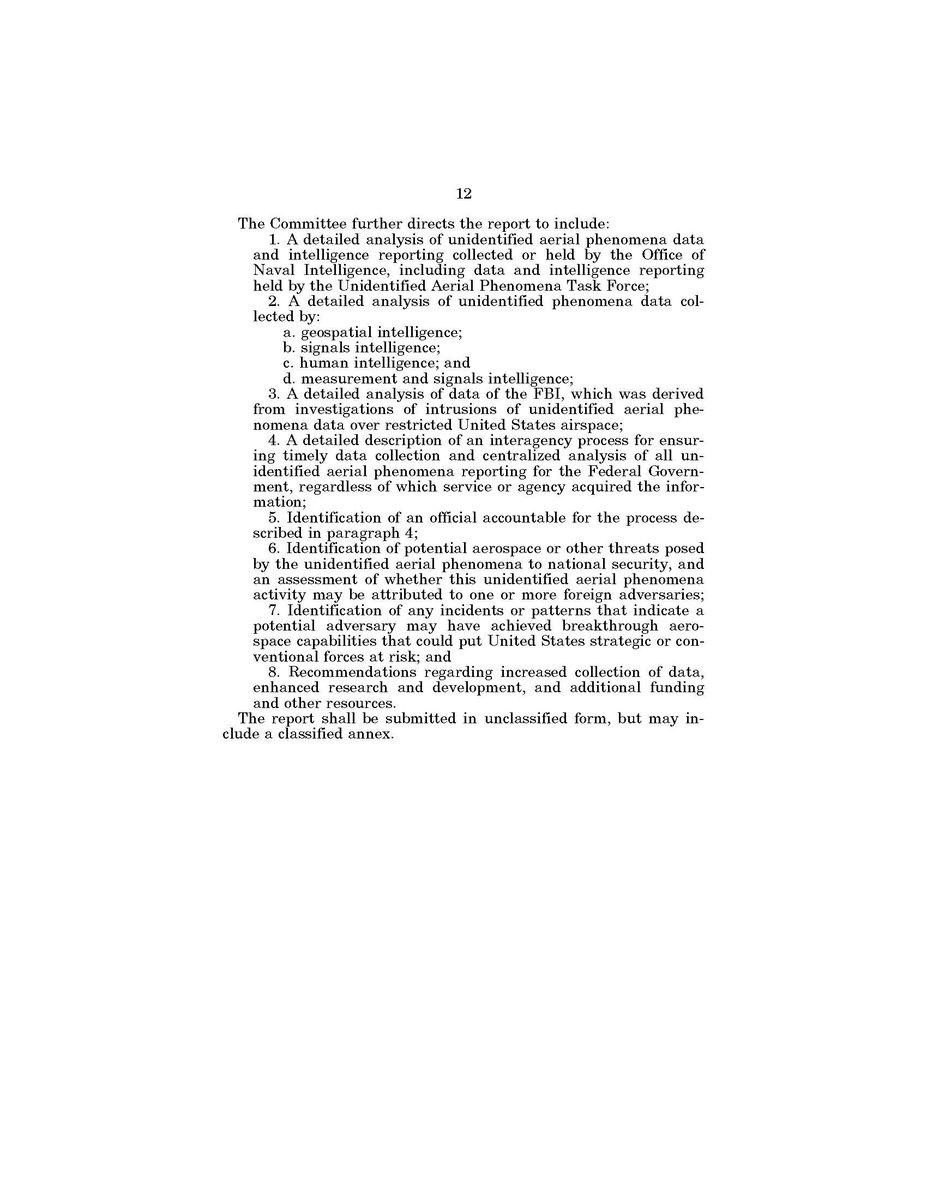
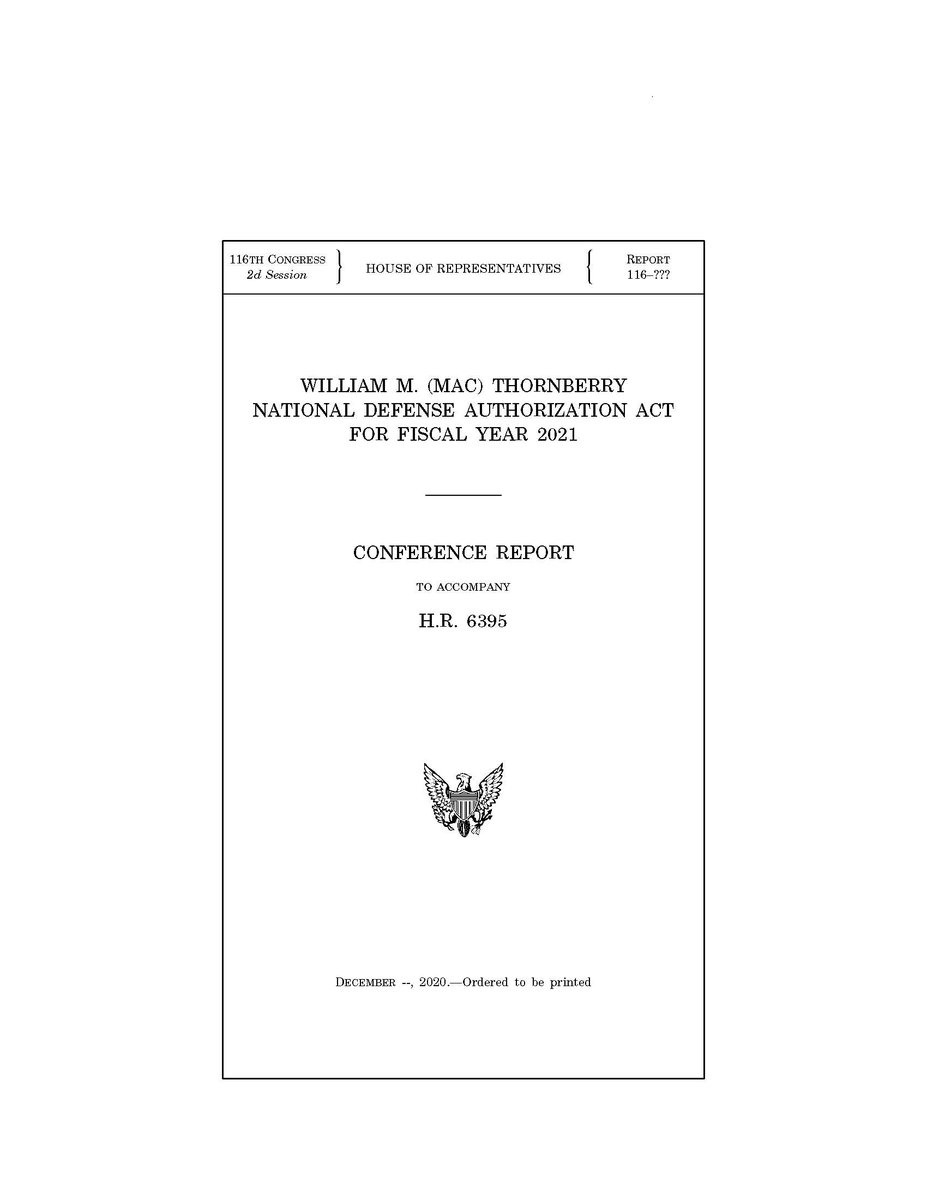
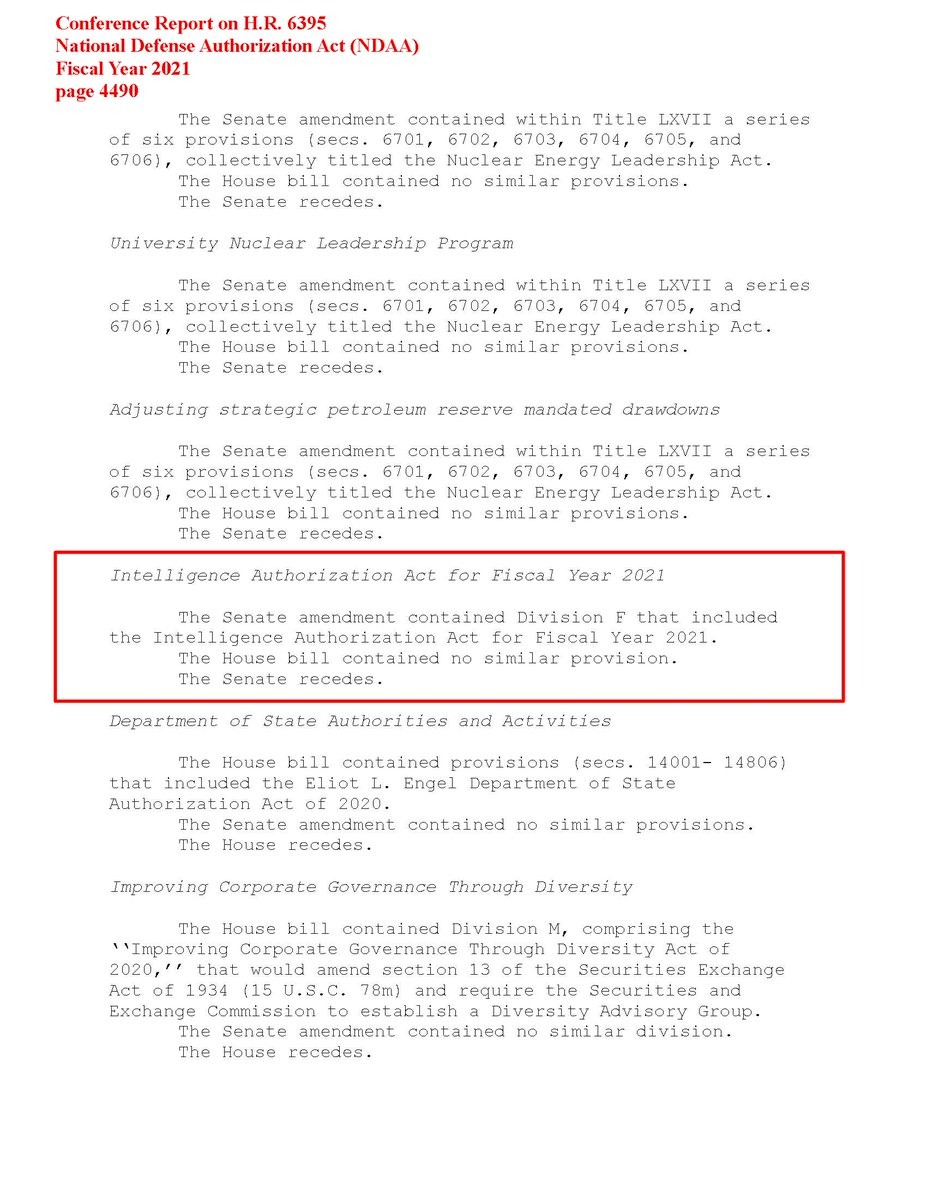

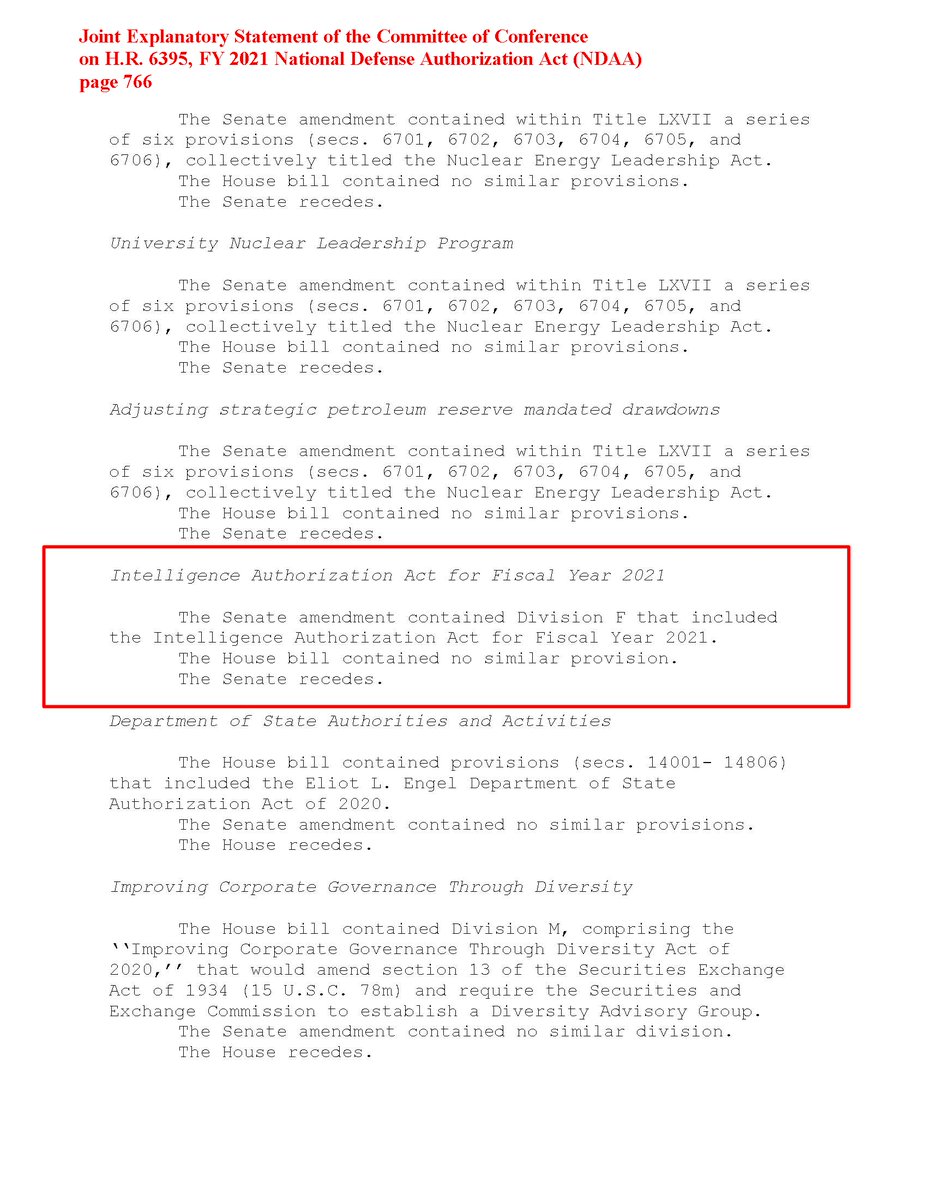


![In response to that congressional mandate, the Department of Defense produced merely a five-page report, at a total cost of $3,790. [I will continue to provide periodic updates on UAP-related congressional developments as warranted. Please follow and retweet those with interest.] In response to that congressional mandate, the Department of Defense produced merely a five-page report, at a total cost of $3,790. [I will continue to provide periodic updates on UAP-related congressional developments as warranted. Please follow and retweet those with interest.]](https://pbs.twimg.com/media/EoaINBhW8AAahFv.jpg)
![In response to that congressional mandate, the Department of Defense produced merely a five-page report, at a total cost of $3,790. [I will continue to provide periodic updates on UAP-related congressional developments as warranted. Please follow and retweet those with interest.] In response to that congressional mandate, the Department of Defense produced merely a five-page report, at a total cost of $3,790. [I will continue to provide periodic updates on UAP-related congressional developments as warranted. Please follow and retweet those with interest.]](https://pbs.twimg.com/media/EoaIOpGW8AENTRj.jpg)
